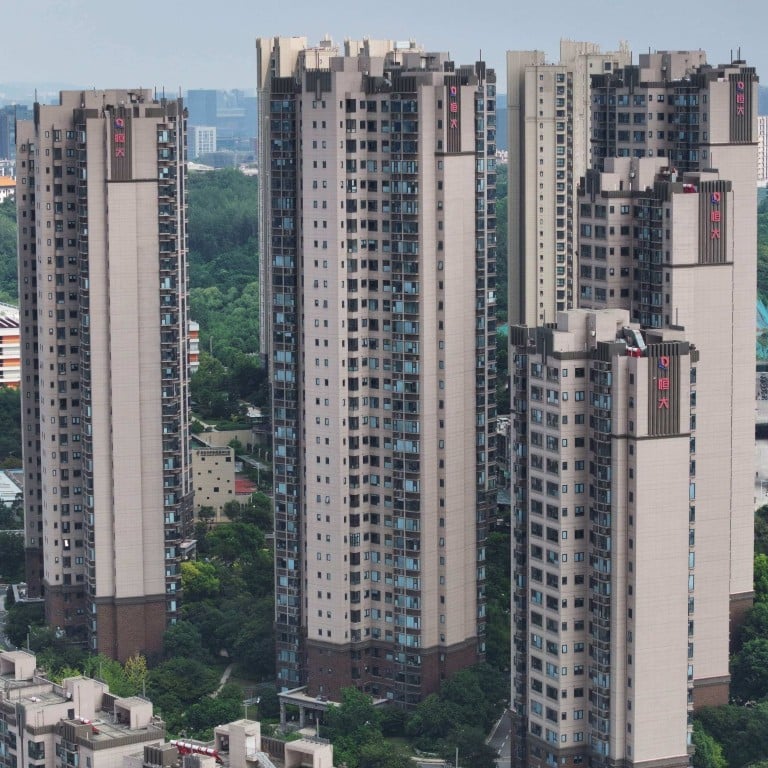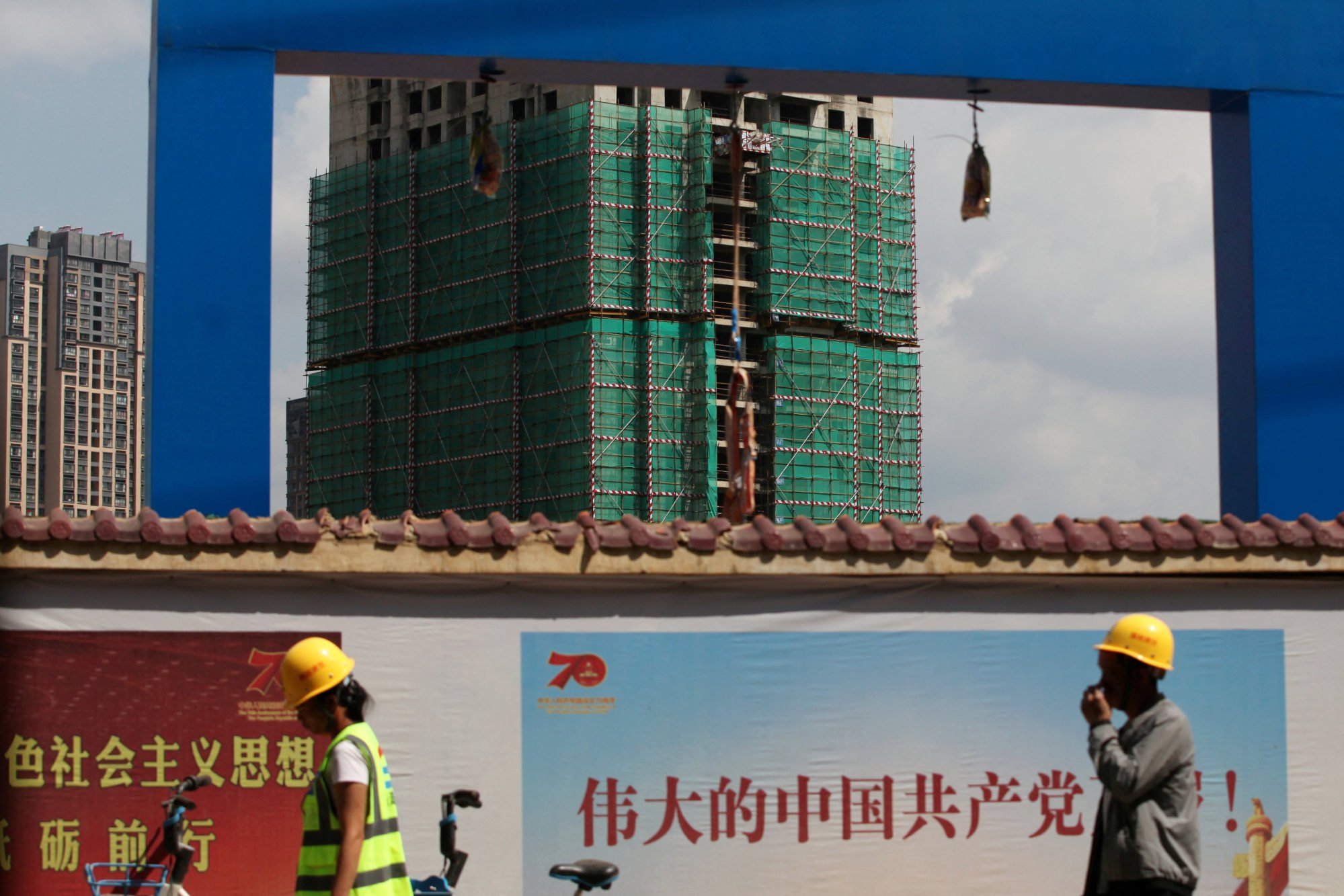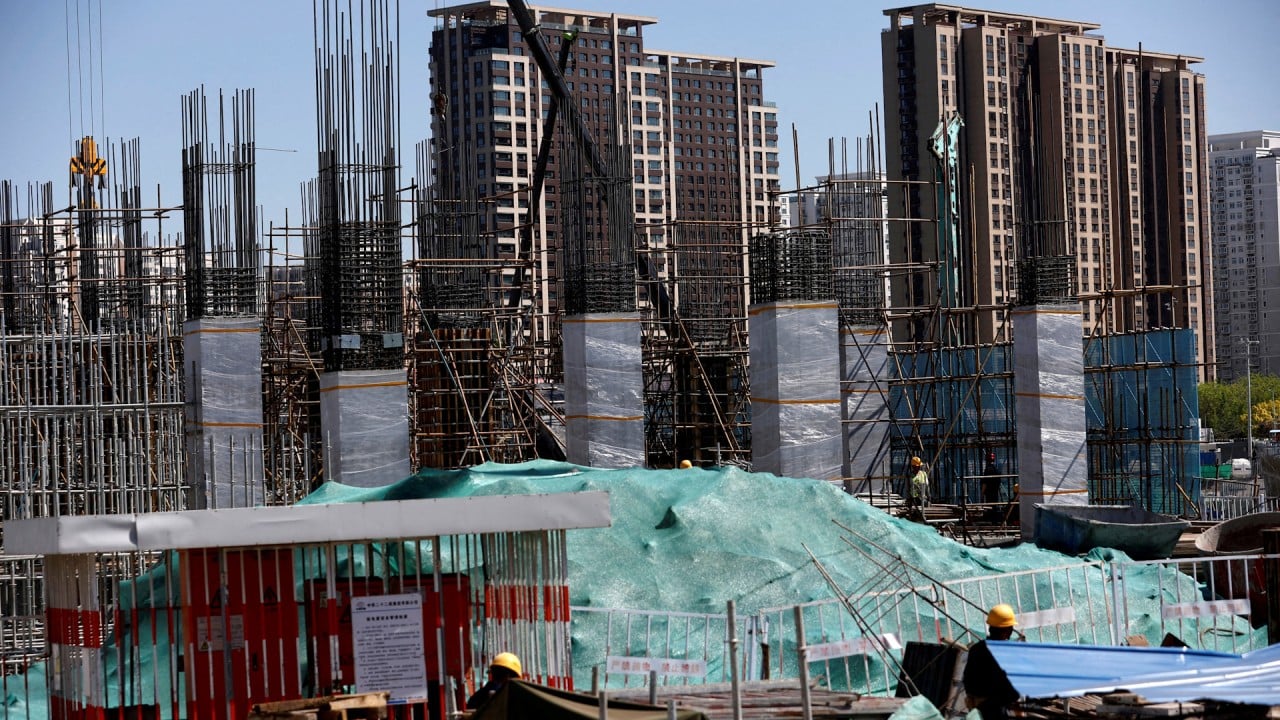
China’s property-driven economic crisis is real but it’s not facing a ‘Lehman moment’
- While the acute risks in China’s real estate sector should not be downplayed, their effect on global markets is prone to misinterpretation and exaggeration
- Stability is the overriding priority in China’s state-controlled financial system, and more aggressive stimulus are available if needed
Nomura has been bearish on China for some time. Even by the standards of its own bleak outlook, though, its latest research report published last Friday makes for particularly grim reading.
As recently as a month ago, such a dire prediction would have been treated by global investors as either overly pessimistic or a risk not worth paying too much attention to. Yet by the end of last week, investors had become far more sensitive to vulnerabilities as another China scare began to take hold.
“That all this is happening after further policy easing begs the question of whether things could actually be a lot worse than many fear,” said Jim Veneau, head of Asian fixed income at AXA Investment Managers in Hong Kong.

The findings of Bank of America’s latest global fund manager survey showed China did not even figure among the biggest “tail risks” in markets. Tellingly, respondents deemed US commercial property as a more likely source for a “systemic credit event” than Chinese real estate.
Not only do international investors not perceive the fallout from the downturn in China’s housing market as a Lehman-type situation – a crisis that could trigger a system-wide collapse on the scale of the disaster that followed the demise of Lehman Brothers in 2008 – there are no telltale signs they are positioning themselves for a China-induced meltdown.
China’s property sector, not falling prices, is its top economic worry
This is mainly because the Chinese property market’s linkages to the global financial system are not on the same scale as a major Wall Street investment bank, but also because of the advantages of a state-controlled banking system and capital controls in forestalling a full-blown financial crisis.
Nomura believes the most markets can hope for is “policies that finally stem the downward spiral and stabilise new home sales at slightly above current levels”. However, such support would be dictated by concerns about social unrest rather than market instability.
Third, even if pressure from markets intensifies, it is unclear whether Chinese policymakers know how to respond. This is because of long-standing policy differences within the government and factors related to the sensitivity and flow of data at a critical moment for China’s economy.
China is not facing a “Lehman moment”, and neither is it likely to given its state-owned financial system. This helps explain why global investors are not overly concerned. The crisis is a structural economic one, which no amount of market pressure can resolve.
Nicholas Spiro is a partner at Lauressa Advisory



